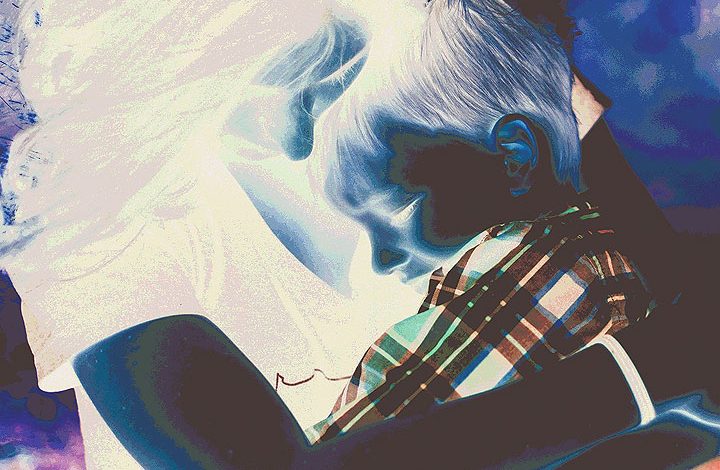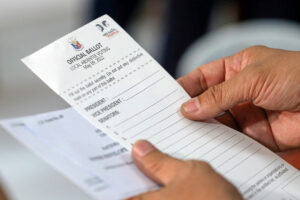Child protection and mental health

The 13th annual Ako Para Sa Bata (APSB) Conference had been transformed into a series of webinars. In 2020, the pandemic lockdown made the organizers design a series of weekly webinars from September to November. It was an innovative presentation that allowed thousands of registrants to join. Presented by Child Protection Network and UNICEF, APSB offers workshops and modules with experts in the fields of social work, psychology, law, medicine, and culture.
This year the APSB Conference webinars are currently being held until Nov. 25.
Here are brief quotes from the leaders of the conference.
“We are very happy this year that we have 10,600 registrants. That’s really breaking barriers. It seems that we are bridging the gaps in terms of making this Ako Para Sa Bata more accessible to everyone in the country. We hope that this year’s program will really help you in your work and in your advocacies,” said Dr. Bernadette J. Madrid, Executive Director of the Child Protection Network Foundation and conference president.
“With UNICEF’S support we are able to continue organizing the annual APSB Conference, that provides continuing education for individuals and professionals in the frontline of child protection work. Providing continuing knowledge to professionals and caring and advocating for children is essential, especially during this difficult time when it is even more important that services and advocacy remain unhampered,” said lawyer Katrina Legarda, Director of the National Network of Women and Children Protection Units of the Child Protection Network. “The youth will continue to be a part of the webinars as reactors to certain topics. The webinar of Nov. 25 will be organized by, for and with the youth,” she noted.
Dr. Renee P. Neri, Scientific Committee Co-Chair, pointed out that “APSB is about Breaking Barriers, Bridging Gaps and Moving Forward one year into this challenging pandemic — how we frontliners, child protection specialists and advocates, can help each other and the children to be more resilient and for them to have a better future.”
“Given the challenges presented by our current situation, a shift on our mindset particularly in child protection is necessary. We should ensure that all Filipino children are protected, regardless of gender, social class, geographical area, given capabilities and available resources.” Dr. Riza C. Lorenzana Scientific Co-Chair remarked.
Among the critical topics is Child Abuse, considered a public health crisis. This module consisted of a talk with a slide presentation by Dr. Norieta Calma-Balderama, FPPA, FPSCAP.
The World Health Organization (WHO) revealed that “children exposed to an abusive environment are likely to acquire chronic mental health problem such as bipolar disorder anxiety, borderline personality disorder, depression and grief.”
Dr. Calma-Balderama’s report showed a strong correlation between child abuse and poor performance in school, drug abuse and early sexual intercourse.
The mental health situation before the pandemic showed that 10 to 20% of children and adolescents were affected by mental health disorders and disability. The incidence of prevalence of suicide attempts increased during the pandemic. The statistics are staggering.
Lockdown and isolation have long term effects. There is intensified poverty, disrupted lives and the exacerbated cyber trafficking. There is the strong link between poverty and exploitation. The lockdowns have made children more vulnerable to violence. There has been an alarming increase of 260% in cyber-sex offense, online sexual exploitation and child abuse.
UNICEF reported that 1.8 billion children in 104 countries (including the Philippines) are at risk. This is because of the disruption of violence prevention, mental health services, inadequate response services, and rehabilitation.
There should be preventive, curative rehabilitative care.
The World Health Organization’s Mental Health Action Plan has two parts: 1.) The importance of mental health promotion during the early stages; and, 2.) ASEAN countries should provide mental health education for students to develop coping skills, and teacher training knowledge to support children.
The facts:
There are limited resources to provide medical and psychosocial care to abused women and children in 106 Women and Children Protection Units in 55 provinces.
The country needs more mental health professionals to handle the mental health crisis.
Some of the different modes of treatment are: play therapy, art therapy, pharmacotherapy, Cognitive Behavior Therapy (CBT), and family therapy.
Dr. Calma-Balderama emphasized the importance of Resilience and Enrichment. Resilience happens when there is an attachment with a stable adult caregiver. This relationship decreases the risk for depressive disorders and reduces the negative impact of abuse and neglect on brain structure. Enrichment in early adolescence lessens the negative effects. Summer camps, sports and arts, exercise, and music training promote positive brain changes via neuroplasticity.
She stressed the basic needs: 1.) child-parent clinical interventions as trauma-informed care and involving parents are essential for (care) continuity and recovery; and, 2.) tele hubs and online consultation (aside from face-to-face consultation) by child psychiatrists, psychologists and social workers.
Multidisciplinary efforts, research, and interventions can help improve the mental health of abused children.
At the workshop “Music therapy during the pandemic,” music therapists Irvin Sayoc Kalugdan from the Fairfax County Public Schools, Virginia, USA, and Danielle Elise Zamar Alcantara, R.N. and professor at Siliman University, Dumaguete offered the benefits of therapy for those affected by crisis or trauma.
They played music videos and explained the benefits of music. It has a significant effect on an individual’s relaxation, respiration rate, pain reduction, and “behaviorally reported anxiety levels.”
The coordinated program of therapy provides positive mood changes, enhanced feelings of control, confidence, and empowerment, and positive physiological changes such as lower blood pressure, reduced heart rate. The exercises include storytelling, song writing, and “the soundtrack of your life” — songs that represent a favorite memory, a victory, a time when you helped make a difference, your best day ever, and composition and lyric analysis.
In “Toning or Grounding Experiential,” participants were encouraged to hum the familiar tune “Lean on Me” by Bill Withers. Here are some of the lyrics:
Verse I
Sometimes in our lives
We all have pain
We all have sorrow
But if we are wise
We know that there’s always tomorrow.
Chorus:
Lean on me
When you’re not strong
And I’ll be your friend
I’ll help you carry on…
For it won’t be long
Till I’m gonna need somebody to lean on.
Bridge:
You just call on me brother
When you need a hand
I might just have a problem
That you’ll understand
We all need somebody to lean on….
Congratulations to the organizers and panelist APSB 2021 and thank you to CPN and UNICEF for bringing hope to all children and women who are adversely affected by this prolonged pandemic.
Ako Para Sa Bata webinars are being held every Thursday, 10-11:30 a.m. until Nov. 25. (For more information, contact the Child Protection Network Foundation, Inc. at akoparasabataconfrence@gmail.com and www.childprotectionnetwork.org). n
Maria Victoria Rufino is an artist, writer and businesswoman. She is president and executive producer of Maverick Productions.




